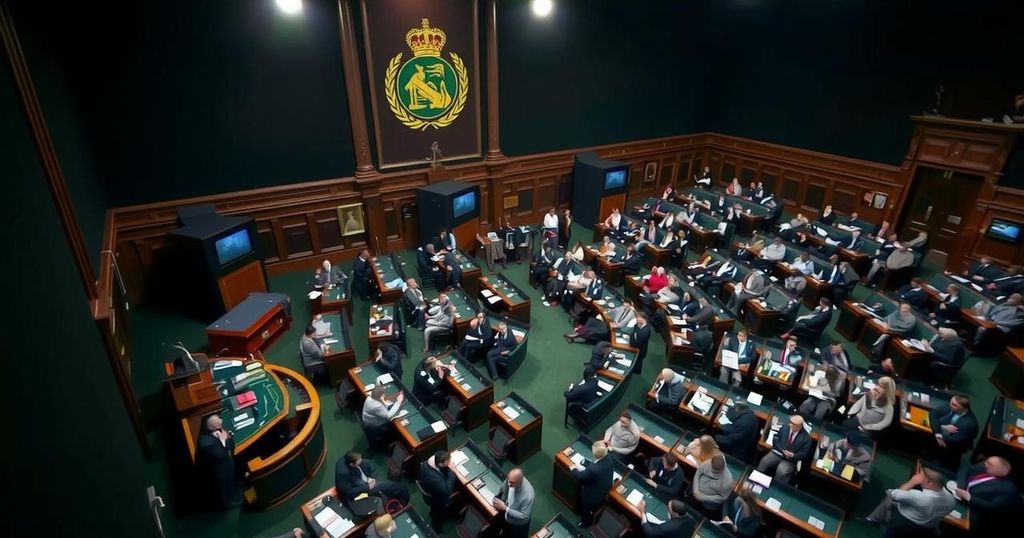A sudden power cut disrupted Zimbabwe’s parliament as Finance Minister Mthuli Ncube was finalizing his budget speech, leaving officials in darkness. The outage, attributed to a lightning strike, underscores the country’s ongoing electricity crisis stemming from drought impacting energy generation at Kariba Dam. Despite a projected 15% contraction in agriculture, Ncube forecasted a 6% economic growth next year, reliant on anticipated better rainfall.
During a critical moment in Zimbabwe’s parliamentary proceedings, a power outage occurred as Finance Minister Mthuli Ncube was concluding his budget address. Key officials, including President Emmerson Mnangagwa and Vice-President Constantino Chiwenga, were left in darkness due to the unanticipated blackout.
This power cut highlights the ongoing electricity crisis in Zimbabwe, which has led to daily blackouts lasting up to twelve hours, primarily attributed to severe drought conditions impacting energy production at the Kariba Dam, the nation’s principal power supply. George Manyaya, spokesperson for the Zimbabwe Electricity Supply Authority (Zesa), remarked that the blackout was unexpected and noted that the parliament typically operates on a dedicated power supply shielded from such cuts. He clarified that the outage was a result of a lightning strike.
Despite observing a contraction of 15% in the agricultural sector due to drought, Minister Ncube forecasted a promising economic growth of 6% for the following year, contingent upon anticipated above-average rainfall that should ameliorate both agricultural output and electricity generation.
The power crisis in Zimbabwe stems from climatic adversities, particularly a prolonged drought that has critically affected the Kariba Dam’s capacity to generate electricity. This has resulted in significant power shortages, forcing the government and the public to adapt to daily blackout routines. The situation has raised concerns regarding the stability of governmental functions, evidenced by the blackout during a crucial budget announcement. The implications of such outages have far-reaching effects on the economy, particularly in vital sectors like agriculture.
In conclusion, the incident within Zimbabwe’s parliament serves as a stark reminder of the electricity crisis that the nation faces, exacerbated by environmental challenges. The unexpected blackout during a significant governmental address illustrates the vulnerabilities in essential infrastructure. Nevertheless, Minister Ncube’s projections for economic growth provide a glimmer of hope for recovery, dependent on improved climatic conditions and subsequent enhancements in energy production.
Original Source: www.bbc.com







